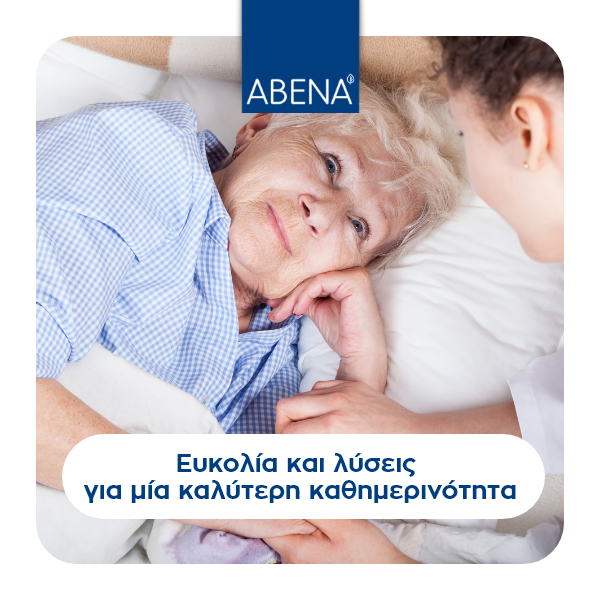In this deluge of information, it was not a paradox to hear and write opinions that are far from being true or useful. Thus, in this article we will avoid the well-trodden path and will not deal with the formulation of categorical propositions - advice to Greek women, but we will try to correct four of the most common perceptions that, amid the enthusiasm of various experts (professionally or not) do not convey the reality and therefore do not help the valid and responsible information of women.
BREAST CANCER SHOULD BE MADE A HIGH PRIORITY AND FUNDING MUCH MORE EFFORTS TO FIGHT THE DISEASE
It is a very widespread perception that even finds a place in official political and government plans, that research into the treatment of breast cancer has been neglected. This is a misconception.
Anyone who deals with oncology information as a whole immediately realizes that, in fact, the number of scientific publications written in the specialized medical press and communications presented at the various medical conferences related to breast cancer is extremely large. This activity is a reliable indicator of the level of support provided for research in this area, which in turn reflects the increased political interest that exists.
The amount of scientific activity on breast cancer is excessive compared to the efforts made on other malignant diseases.
Thus, the truth is that there is interest and more sensitivity for this specific form of cancer, without this underestimating the necessity of further improvement of both research and preventive care, early diagnosis, treatment and post-therapeutic rehabilitation concerning it.
I HAVE A STRESSFUL FAMILY HISTORY
One of the most common misconceptions that women have about themselves is that they have a bad history because either a member or members of their family have had some form of cancer, or a relative has had breast cancer.
"My grandmother developed breast cancer at age 73.", "My mother developed breast cancer at age 68, had surgery, did well, and died of her heart at age 76," "A sister of my father had breast cancer, old. I don't remember her age. And also a sister of my mother," "My family has a susceptibility to cancer. My mother who passed away from a brain tumor, relatively young and my uncles, on my father's side, one from colon cancer and the other from lung cancer, relatively young too." These are statements that a breast cancer doctor hears every day. These women are not merely making a report, a fact that would need no comment. The bad thing is that these women live with the burden of carrying a heavy family stigma. They feel disadvantaged and, even worse, they feel bitter because they believe they have gifted their girls with this flaw.
Two findings should be clear in the mind of a woman:
The first is that the vast majority of breast cancer occurs without any family predisposition.
The second is that such a predisposition actually exists in a small percentage of women and mainly it can concern women who had one (1) or two (2) first degree relatives in their family (mother, aunt, sister, daughter), from same side, who developed breast cancer at a young age (before menopause). Also, women who had a relative who developed breast cancer in both breasts.
Having a single case of breast cancer in the family is not an indication of a family predisposition. It is usually a random event. The same is true for other forms of cancer. If one considers how common the disease is, especially in older people, it is not a paradox that in every family there will be one or more members who developed cancer.
Let women, therefore, face the incidence of cancer in their family with less stress and fear. But, let the doctors also inform the women properly and not let them live with unfounded anxiety.
“MRI IS BETTER THAN MAMMOGRAPHY. - INSTEAD OF A MAMMOGRAM, I CAN DO AN ULTRASOUND"
Two increasingly frequently appearing estimates, which unfortunately often have as their source the medical circles and are expressed either as a personal perception of a doctor who conveys it to the women who visit him, or as a public statement of some experts. In the second case, this can be done either directly, or with statements that leave the matter "up in the air".
The truth is that mammography is the best existing possibility to visually diagnose breast cancer. It has some flaws - like any medical test - but it is still the most appropriate means of screening the population.
Magnetic resonance imaging, apart from being a tiring examination for the woman, is also particularly expensive, while it is not devoid of false results (especially in the form of finding false positive findings). MRI has some specialized indications. It is not appropriate to use MRI to solve all cases of diagnostic problems in the breast. Also, this test cannot replace mammography for population screening. It is under consideration at this time whether MRI can be used for women who meet the criteria of a heavy family history or are carriers of the mutated genes linked to breast cancer.
With ultrasound, the confusion is of a different form. Many women believe that it can replace mammography and free them from the (unfounded) fear of radiation. However, ultrasound is extremely useful as an adjunct to mammography. And this means that it is successfully used where mammography is not indicated (eg to confirm the existence of a fibroadenoma in the breasts of young women) or when further investigation of a mammography finding is required (is the mass imaged cystic or solid) . Ultrasound is currently not a reliable alternative to mammography for population screening.
"THE EXISTENCE OF BREAST CANCER MEANS THAT THE BREAST MUST BE REMOVED"
For more than a quarter of a century it has been shown that in many cases of breast cancer (ie those with a small tumor size) mastectomy may not be performed and the patient may have just as good results if she undergoes simple removal of the tumor, which in in most cases it will be accompanied by an operation on the axillary lymph nodes as well as another type of complementary treatment (radiotherapy, chemotherapy and hormone therapy).
In recent years there has been a continuous decrease in the number of patients undergoing mastectomy, but unfortunately this is happening at a slower rate than expected based on the percentage of women who are operated on with small tumors. Many scientists estimate that this is due to the inactivity (conservatism) tendencies of many surgeons and emphasize the need for better and more intensive information. It is certain that the degree of reduction in the rate of mastectomies reflects the level of preventive medicine in an area (since early diagnosis makes it possible to discover cancers when they are still young), but also the level of medical care (since in addition to training of surgeons, it has been shown that the lack of radiotherapy centers often prompts some surgeons to choose mastectomy).
In any case, the woman who is going to undergo a tumor removal from the breast should be fully informed by her surgeon, both about the extent of the operation, and about the therapeutic possibilities available to her.
Evangelos Filopoulos is a Surgeon, Director of the Breast Clinic of "AGIOS SAVVAS" Cancer Hospital and President of the Hellenic Cancer Society
e-mail: efilopoulos@yahoo.gr
Find Evangelos Filopoulos on Facebook, Pinterest and read his posts on Tumblr
 Ευκολία και λύσεις για μία καλύτερη καθημερινότητα!
Ευκολία και λύσεις για μία καλύτερη καθημερινότητα!